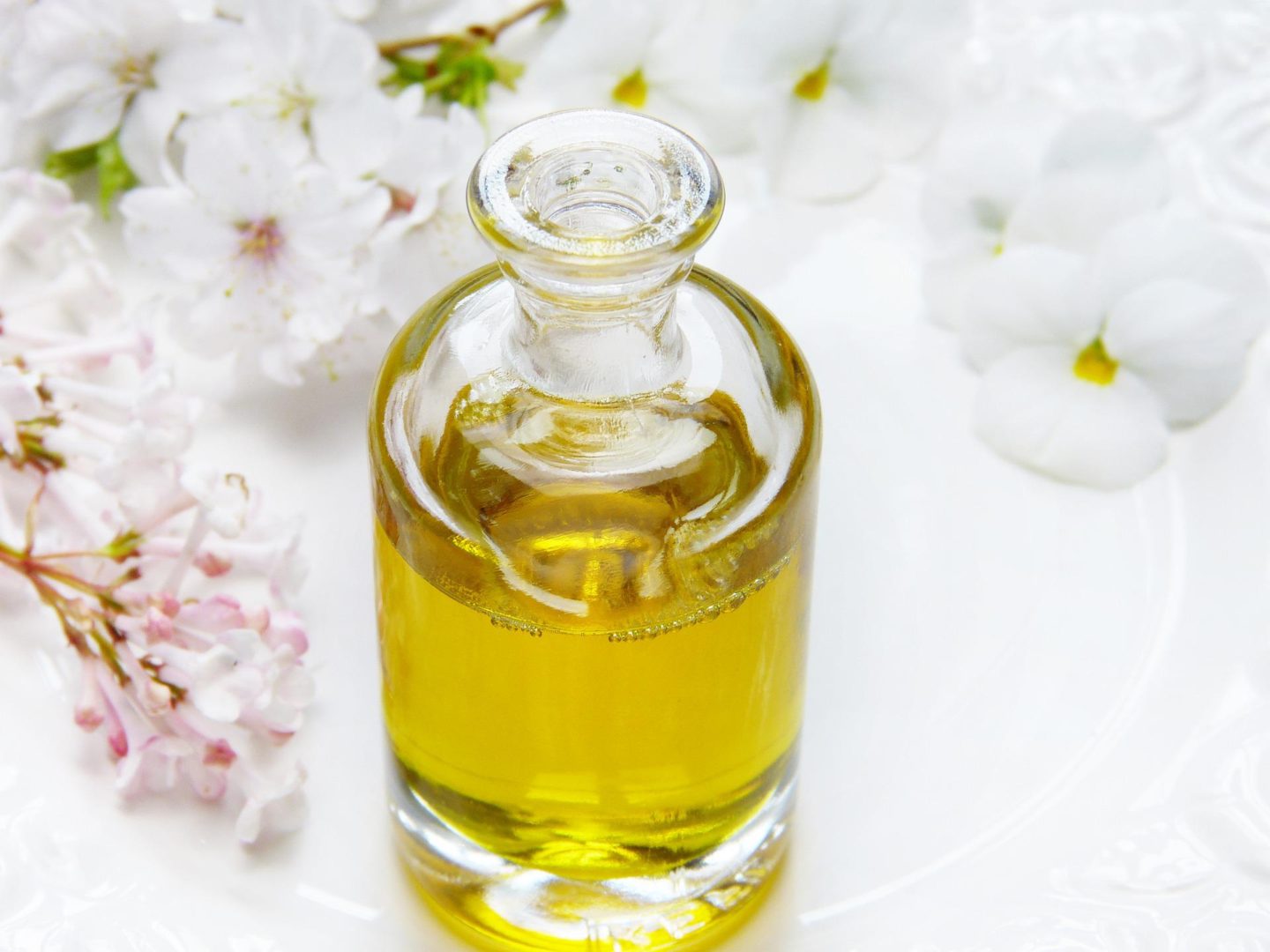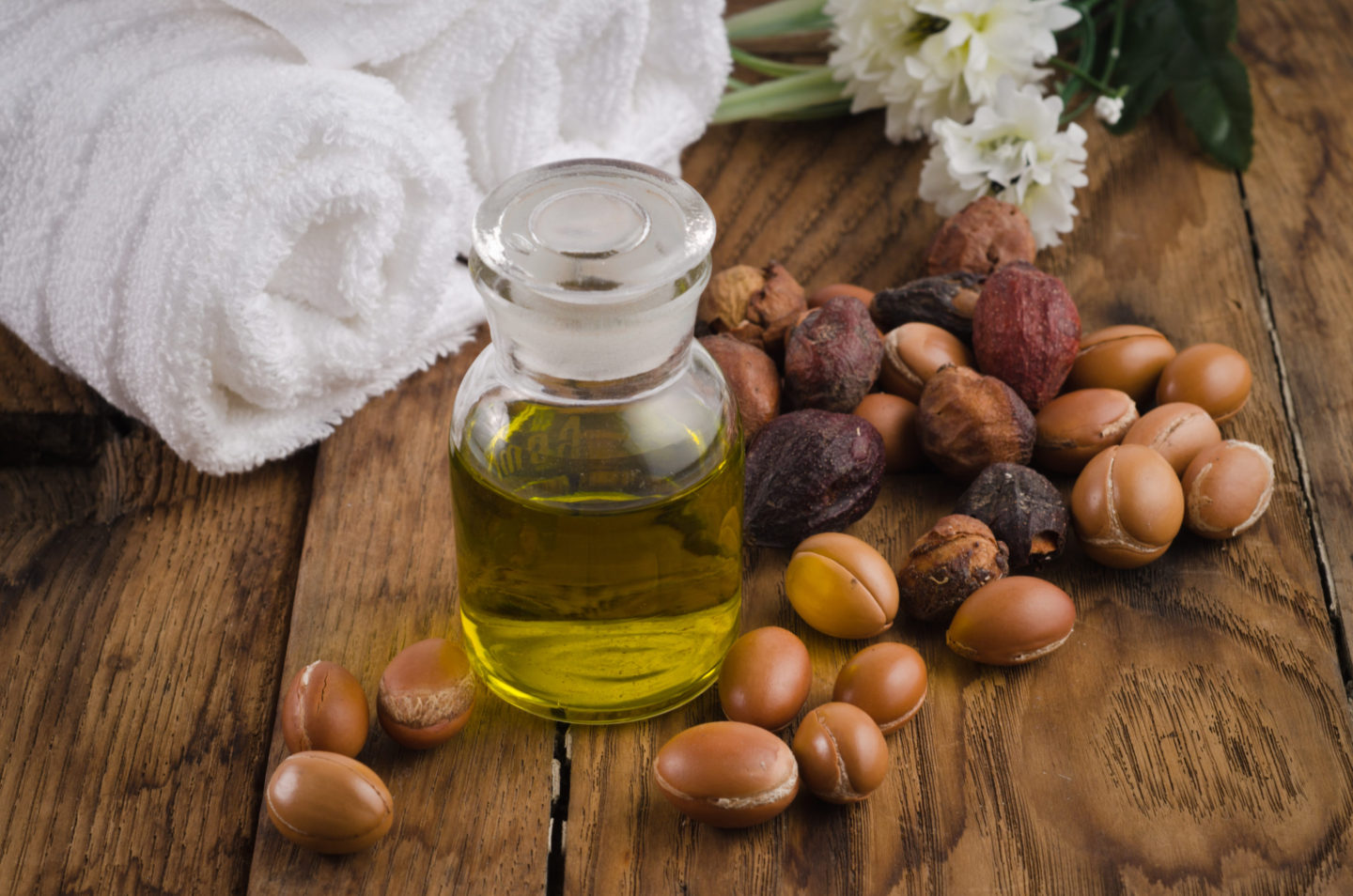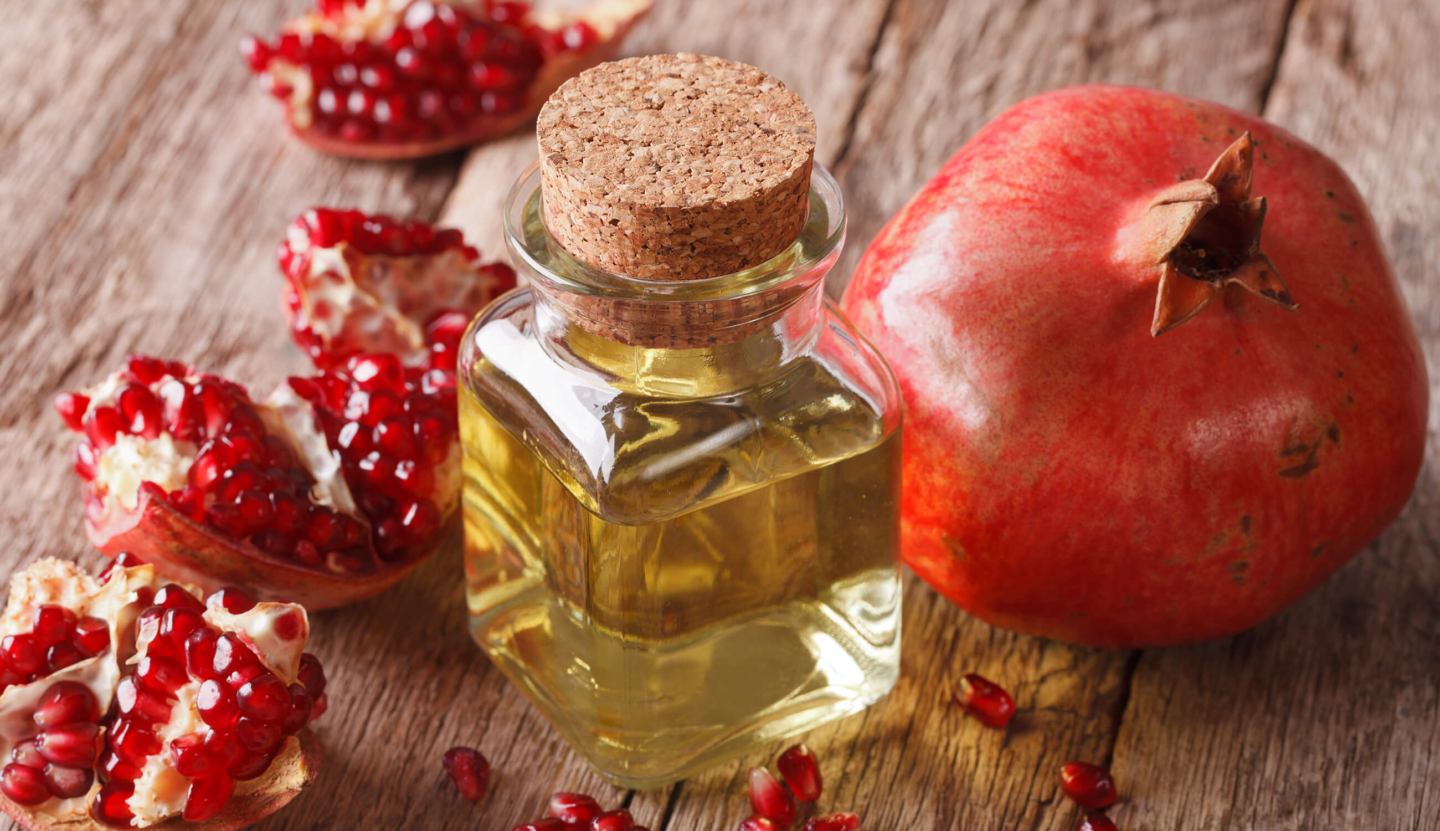
Using the right facial oils like non-comedogenic oils in your routine has its benefits whether you have oily skin or even dry skin you don’t want to use oils that will clog your pores. This is where non-comedogenic oils come in.
These non-comedogenic oils are a great way to provide extra nourishment to your skin and help to strengthen and improve your skin barrier.
Non-comedogenic oils are the best oils to use on your face.
Table of Contents
What are non-comedogenic oils?
Non-comedogenic oils are oils that do not clog the skin pores or cause a breakout or acne. Non-comedogenic oils can be used as a cleanser or as a moisturizer.
These non-comedogenic oils are used in the formulation of cleansing oil or cleansing balm that you use for your double cleansing routine. They are also used to create skin serum.
Non-comedogenic oils have Linoleic acid an omega-6 essential fatty acid not produced by the body.
It has anti-aging, barrier protective, soothing, and balancing properties, and is most suitable for oily and acne-prone skin.
Non-comedogenic oils also have Oleic Acid an omega-9 fatty acid, which is very hydrating and ideal for drier skin.
Comedogenic Scale
The comedogenic scale is how likely it is that any specific ingredients, such as oils and butter in a formulation, will clog pores. The scale uses a numbering system of 0 to 5.
- 0 – won’t clog pores
- 1 – very low likelihood of clogging pores
- 2 – moderately low likelihood
- 3 – moderately likelihood
- 4 – fairly high likelihood
- 5 – high likelihood of clogging pores
The best non-comedogenic oils should have a comedogenic rating of 0-2 which means they will unlikely clog your pores.
For me, I will be staying in the 0-1 comedogenic rating, so in no particular order let us go straight to the best non-comedogenic oils for your face.
Best Non-Comedogenic Oils
Argan oil

Argan oil is been used traditionally both topically and orally to improve the health of skin, hair, and nails.
Argan oil is very rich in vitamin E, omega, fatty acids, and linoleic acids.
It is one of the best non-comedogenic oils when it comes to skincare and an excellent option for those who have acne-prone skin.
Some of the benefits of argan oil to the skin are argan oil helps protect the skin against free radical damage caused by the sun and this prevents burns and hyperpigmentation.
Argan oil is a good moisturizer, it has an abundance of vitamin E, which can help improve water retention in your skin.
For oily skin people, argan oil can help decrease total sebum and reduce the oiliness of the skin.
Finally, it has healing properties and helps to reduce symptoms of different inflammatory skin conditions like psoriasis and rosacea.
Rating: Argan oil has a rating of 0 on the comedogenic scale and it is one of the non-comedogenic oils that is suitable for all skin types.
Shop Now: Cliganic Organic Argan Oil
Hemp seed oil
Hempseed Oil is the oil derived from the seeds of the hemp plant which is a cannabis plant cultivated for non-drug use.
Hempseed oil is perfect for most skin types including oily skin and acne-prone skin as it can moisturize your skin without clogging your pores.
It can even help to balance out oily skin by hydrating it and regulating your skin’s oil production.
Hempseed oil has omega-6 fatty acids like gamma-linolenic acid (GLA), which acts as a powerful anti-inflammatory while also encouraging skin growth and new cell generation.
This can help to calm inflammation and irritation on the skin, including acne and some conditions like psoriasis, while keeping the skin nourished and moisturized.
Rating: Hempseed oil has a rating of 0 on the comedogenic scale and it is suitable for all skin types.
Shop Now: Advanced Clinicals Hemp Seed Oil for Face
Safflower oil
Safflower oil is very high in vitamin E, low in saturated fat, and contains omega-6 fatty acids. It is high in Linoleic Acid.
Vitamin E is an antioxidant and will help defend against free radicals, that tend to attack collagen and help to prematurely age the skin.
Research also shows that safflower oil works to reduce skin inflammation and plays a significant role in wound healing.
Its anti-inflammatory effects may also be potentially helpful in treating pimples and acne spots. It may also help unclog your pores.
Rating: Safflower oil has a rating of 0 on the comedogenic scale and it is also one of the non-comedogenic oils suitable for all skin types.
Shop Now: Safflower Oil
Castor Oil
Castor oil is a vegetable oil produced by cold-pressing castor seeds and then applying heat.
Castor oil is thought to have anti-inflammatory, antimicrobial, moisturizing, and some other useful properties.
It is high in Ricinoleic Acid, and castor oil and ricinoleic acid have demonstrated anti-inflammatory properties, which makes them useful for treating irritated skin.
The antimicrobial and anti-inflammatory properties of castor oil make it useful in reducing acne.
The Ricinoleic acid can inhibit growth in the bacteria that cause acne.
Castor oil contains triglycerides, these can help maintain moisture in the skin, making it a useful treatment for dry skin.
Rating: On the comedogenic scale, castor oil has a rating of 1, which means it has a very low likelihood of clogging pores.
Oily skin and acne-prone skin can still benefit from it.
Shop Now: Kate Blanc Cosmetics Castor Oil
Kiwi Seed Oil
Kiwi Seed Oil is gotten from the seeds of the kiwi fruit. It is rich in Vitamin C, Vitamin E, potassium, and magnesium.
Kiwi seed oil has a high content of essential Omega 3 fatty acids such as linolenic acid and alpha-linolenic acid.
It helps to maintain moisture in the skin and hair and prevents drying and scaling.
The antioxidant found in this oil eliminates free radicals which are the cause of cell damage and degeneration.
Kiwi Seed Oil is recommended for dry and aging skin, it absorbs into the skin quickly and leaves little to no residue.
Rating: Kiwi Seed Oil has a comedogenic rating of 1, meaning there is a very low likelihood that it will clog pores.
Shop Now: Kiwi Seed Oil
Rosehip Seed Oil

Rosehip Seed Oil has skin-nourishing vitamins and essential fatty acids. It has a high ratio of linoleic, alpha-linolenic, and oleic acid, as well as tocopherol and carotenoids.
It is useful as an anti-inflammatory and antioxidant to neutralize oxidative stress.
Rosehip Seed Oil is an ultra-effective emollient and moisturizer, it can effectively soften skin and improve skin barrier function.
With high levels of vitamin C, rosehip seed oil can help with the appearance of fine lines and wrinkles, brighten skin, and help fight free radicals in the skin.
The anti-inflammatory effects of rosehip oil calm redness and reduce cysts thereby fighting acne.
Vitamin A, or retinol, in rosehip oil, encourages skin cell turnover, it helps exfoliate and brighten skin.
Rosehip Seed Oil is recommended for almost all skin types, especially oily skin and acne-prone skin.
Rating: Rosehip Seed Oil has a comedogenic rating of 1, meaning there is a very low likelihood that it will clog pores.
Shop Now: Rosehip Seed Oil
Watermelon Seed Oil
Watermelon seed oil is extracted through the cold press of the watermelon seeds after these have been dried.
The watermelon seed oil contains high amounts of unsaturated fatty acids, primarily linoleic and oleic acids.
It is a super-emollient for dry skin as it can trap moisture within deep levels of the dermis which helps repair the moisture barrier of anyone suffering from dehydrated skin.
The linoleic acid present in this oil helps regulate sebum in oily skin. It quickly gets absorbed by the skin leaving a non-greasy feeling.
The watermelon seed oil contains vitamins A and E and other phenolic compounds that give it a strong antioxidant effect.
This oil helps protect the skin from sun damage.
It contains traces of vitamin A and other minerals that help improve hyperpigmentation.
Vitamin E present in it helps improve blood circulation and reduces dark circles around the eyes.
Watermelon seed oil works for most skin types, especially oily skin,acne-prone skin, and sensitive skin.
Rating: Watermelon seed oil has a comedogenic rating of 0-1 it will unlikely to clog pores.
Shop Now: Watermelon Seed Oil
Sweet almond oil
Sweet almond oil is both a moisturizer and an emollient, it can help treat common skin conditions, such as dermatitis and eczema.
Sweet almond oil is an anti-inflammatory, it may help ease swelling of the skin, and reduces puffiness and under-eye circles.
It helps improve acne, the oil’s fatty acid content may help dissolve excess oil on the skin, while the retinoids in the oil may reduce the appearance of acne and improve cell turnover.
Sweet almond oil may be an effective treatment for preventing and reducing stretch marks.
Rating: Sweet almond oil has a rating of 2 on the comedogenic scale, it has moderately low chances of clogging pores.
It is good for almost all skin types, especially for dry skin, and sensitive skin.
Shop Now: Sweet Almond Oil
Abyssinian Seed Oil

Abyssinian or Crambe oil is extracted from the seeds of a beautiful little white flower, called Brassica Abyssinica.
It is very light in texture and it provides intense hydration without leaving the skin feeling greasy.
Abyssinian Oil contains an abundance of both linoleic and linolenic acids which is helpful with skin regeneration, anti-inflammatory, cell-communicating, and skin conditioning.
It also has a very high resistance to oxidation, which means these nourishing ingredients retain their highest potency for a longer time.
Abyssinian Oil is suitable for all skin types, from very sensitive skin, and dry skin to oily skin.
Rating: Abyssinian Seed Oil has a comedogenic rating of 1.
Shop Now: Abyssinian Seed Oil
Grapeseed Oil
Grapeseed Oil is a lightweight oil that is suitable for most skin types including sensitive skin and acne-prone skin.
It is extracted from the seeds of wine grapes.
Grapeseed oil treats acne outbreaks as it has proven antimicrobial properties, so it attacks the bacteria that can get deep into your pores and cause breakouts.
Grapeseed oil makes your skin softer and more elastic. It has fatty acids, which can help improve your skin’s moisture level by reducing transepidermal water loss.
It also contains a powerful antioxidant ingredient called Proanthocyanidins which may even out skin tone when it’s used on your skin consistently.
Rating: Grapeseed Oil has a comedogenic rating of 1.
Shop Now: Grapeseed Oil
Emu Oil
Emu Oil is made from the fat of an emu. The emu is a flightless bird, native to Australia, that looks similar to the ostrich.
Emu oil is a bright yellow liquid, made up of mostly fat, which is collected from the deposits below the skin of the bird.
It penetrates deeper into your skin and carries other ingredients with it as it has increased enhancement and carrier capabilities.
Emu oil is rich in oleic acid, palmitic acid linoleic acids, and antioxidants. It does a fantastic job of improving hydration and preventing water loss.
It also has positive effects on collagen production that keeps your skin elastic, plump, and wrinkle-free.
New mothers can use an emu oil-based cream after delivery to improve hydration around their nipples and areola.
This can help decrease nipple pain or trauma due to breastfeeding.
Emu oil is safe for all skin types but is most beneficial to individuals with dry, inflamed skin.
Rating: Emu Oil has a comedogenic rating of 1.
Shop Now: Emu Oil
Camellia Seed Oil
Camellia Seed Oil comes from the camellia flower, it contains major fatty acids including omega 3 and omega 6. It is also high in vitamins A, B, C, D, and E.
It provides nourishment to your skin, as well as a velvety smooth finish as it mimics your skin’s natural oil, your skin absorbs it quickly.
Camellia seed oil has antioxidants that help to calm inflamed and irritated skin, this may help minimize acne.
It also can inhibit the production of melanin in your skin. Melanin is responsible for spots known as hyperpigmentation.
The essential nutrients and acids that nourish your skin also work to nourish and strengthen your hair and lashes.
This helps preserve your hair’s protein structure and prevent UV damage.
Rating: Camellia oil has a rating of 1 on the comedogenic scale.
Shop Now: Camellia Seed Oil
Hazelnut Oil

Hazelnut Oil is rich in fatty acids, proteins, minerals, and vitamins.
The high vitamin E and fatty acid content in hazelnut oil can help increase hydration in the outermost layer of the skin.
It also helps improve skin elasticity, making it look firm and supple.
The tannins in hazelnut oil make it an astringent that can help dry-oily skin, cleanse and shrink pores, and remove bacteria.
Hazelnut oil contains vitamins and essential fatty acids that protect the skin from sun damage. These nutrients also improve collagen production.
Hazelnut oil is non-greasy and is ideal for oily skin. It also has astringent properties and closes the skin pores, and may help those with acne-prone skin or oily skin.
Rating: Hazelnut oil has a rating of 1 on the comedogenic scale.
Shop Now: Hazelnut Oil
Meadowfoam Seed Oil
Meadowfoam Seed Oil has the potential to moisturize your hair and skin without leaving a greasy feeling.
Meadowfoam oil is intensely emollient with a light texture that is suitable for all skin types.
There are found positive results for treating stretch marks with a mixture of shea butter, cocoa butter, olive oil, and meadowfoam seed oil.
The emollient properties of meadowfoam seed oil give it the potential to keep your hair hydrated by locking in moisture.
Meadowfoam oil works for most skin types, especially oily skin,acne-prone skin, and sensitive skin.
Rating: Meadowfoam Seed Oil has a rating of 1 on the comedogenic scale.
Shop Now: Meadowfoam Seed Oil
Neem Oil
Neem Oil is high in fatty acids and other nutrients although it has a harsh odor.
Neem oil may promote blood vessel and connective tissue growth, thus enhancing wound healing.
It may also be used to treat the symptoms of psoriasis, eczema, and other disorders of the skin.
It has anti-aging effects and has collagen which gives the skin structure, making it look plump and full, while elastin helps retain the skin’s shape.
Neem oil is safe but extremely potent. If it’s your first time using neem oil, start by trying a small, diluted amount of it on a small area of your skin, away from your face.
Rating: Neem oil is rated at 1-2 on the comedogenic scale.
It works best on dry and acne-prone skin and can be used on most skin types.
Shop Now: Neem Oil
Sunflower Seed Oil
Sunflower Seed Oil is made by pressing the seeds of the Helianthus annuus plant, it is highly absorbent, and won’t clog pores.
Sunflower oil has emollient properties that help the skin retain its moisture.
It contains vitamin E that helps trap moisture inside skin cells thereby keeping your skin hydrated for a longer period.
It also helps protect skin from free radicals and adverse effects of the sun, such as premature aging and wrinkles.
In addition to vitamin E, sunflower oil is also rich in vitamins A, C, and D, making it effective in the treatment of acne.
The sunflower seed oil has anti-inflammatory properties that help lower skin redness and roughness.
It’s non-irritating for most people and can be used on all types of skin, including dry, normal, oily, and acne-prone.
Rating: Sunflower seed oil has a rating of 0 on the comedogenic scale which means it will not clog pores. All skin types can use it.
Shop Now: Sunflower Seed Oil
Pomegranate Seed Oil

Pomegranate Seed Oil contains vitamin C which works by reducing cellular damage in your body, as well as other antioxidants such as anthocyanins, ellagic acid, and tannins.
It has anti-aging benefits, antioxidants helped decrease the incidence of age spots and wrinkles.
The pomegranate seed oil contains punicic acid, an omega-5 fatty acid that helps to hydrate and prevent moisture loss, it helps to support the skin barrier.
It can help manage inflammation, the antioxidants work by neutralizing free radical damage in the skin, which in turn eases inflammation.
It has antimicrobial properties, so if you have acne-prone skin, pomegranate seed oil will be good for you because it can help tend to the bacteria that play a role in acne formation.
The antioxidants in pomegranate are also thought to help provide natural protection against ultraviolet (UV) rays.
Rating: Pomegranate Seed Oil has a rating of 1 on the comedogenic scale.
Shop Now: Pomegranate Seed Oil
These are a few non-comedogenic oils you can try, I tried to stay with a comedogenic rating of 0-1 but there are other oils you can try especially if you have dry skin.
If you have oily skin, avoid oils that tend to clog pores on your face, like coconut oil, wheat germ oil, and others that are high in oleic fatty acids.
But for my oily skin, acne-prone skin, and sensitive skin people, these non-comedogenic oils are your best bet when it comes to using oils on your face.
Non-comedogenic oils like grape seed oil, rosehip, and others are high in oleic fatty acids.
Hope you found this post helpful in selecting which facial oils you can incorporate into your skincare routine.
Frequently Asked Questions
How can non-comedogenic oils be incorporated into skincare?
- Before using any of these non-comedogenic oils on your face or body, do a patch test. Use on your inner wrist and wait 24 hours to see if you react.
- Organic oils are the best try buying high-quality oils with no added ingredients so you get the best results.
- You can mix this oil with other oils or use them alone.
- Don’t use any oil which comes from a plant you’re allergic to.
Which non-comedogenic oil is best for the face?
- Argan Oil
- Abyssinian Seed Oil
- Safflower Oil
- Hemp Seed Oil
- Grapeseed Oil
Best non-comedogenic oils for oily skin and acne-prone skin
- Rosehip Seed Oil
- Grapeseed Oil
- Passionfruit (Maracuja) Seed Oil
- Meadowfoam Seed Oil
Can non-comedogenic oils cause acne?
Using non-comedogenic oils has a high chance of not causing acne because they do not clog your pores.



Leave a Reply